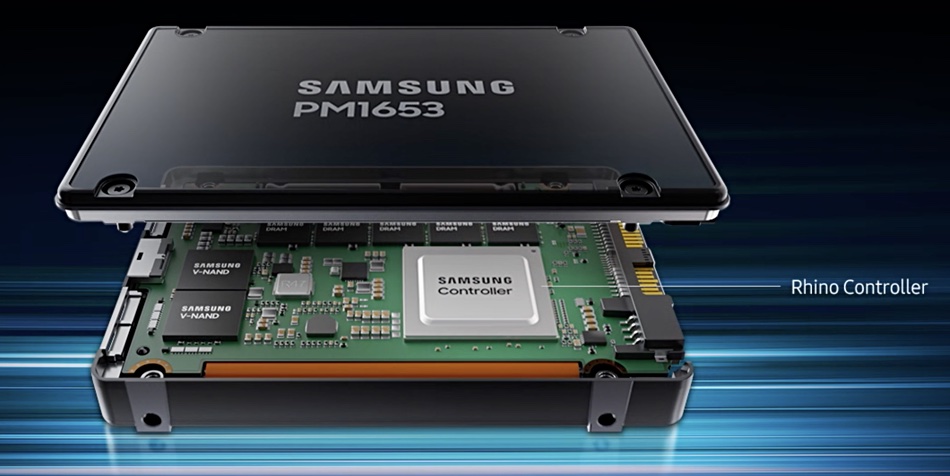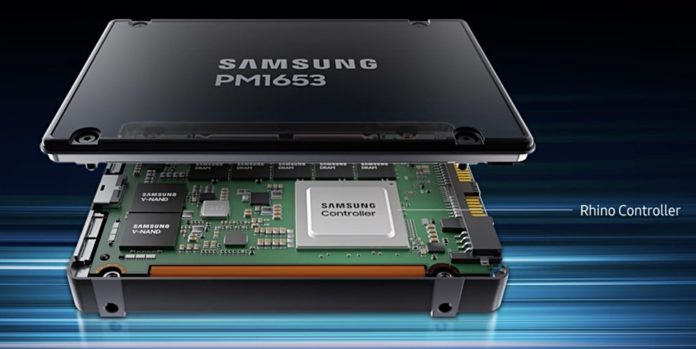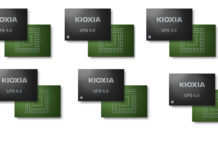Samsung has re-implemented its 2016-era PM1643 SAS SSD as the PM1653, doubling its speed and more than doubling its layer count. It’s still not as fast as a PCIe gen 4 interface drive but is ready for enterprises and OEMs that are updating their SAS-based SSD infrastructure to 24Gbit/s (24G).
The PM1653 is a 2.5-inch format drive with capacities ranging from 800GB to 30.72TB, the same range as the earlier PM1643. This prior drive was built with 64-layer V-NAND, Samsung’s 4th 3D NAND generation, organised with 3 bits/cell (TLC). The PM1653 ups the V-NAND generation to 6 with 128 layers, still using TLC cells.
It has two SAS ports and works with Broadcom’s 24G SAS adapter and, according to a statement from Jas Tremblay, VP and GM of Broadcom’s Data Center Solutions Group: “The combination of the PM1653 SSD and Broadcom’s next-generation SAS RAID products delivers up to 5X RAID 5 performance.”

Samsung says the PM1653 offers up to 800,000/270,000 random read/write IOPS and moves sequential data around at up to 4.3GB/sec writing and 3.8GB/sec when reading. The earlier PM1643 topped out at 400,000/90,000 random read/write IOPS. It throughput was slower as well – 2.1GB/sec sequential writes and 2GB/sec sequential reads.
However, PCIe Gen 4 interfaces are faster than 24G SAS. Samsung’s 980 PRO uses that PCIe interface and the same 128-layer TLC NAND as the PM1653. It comes in the M.2 format and pumps out 800,000 random read IOPS but up to 1 million random write IOPS. Its maximum bandwidth is superior to the PM1653 as well: 6.9GB/sec sequential writes and 5GB/sec sequential reads.
A fifth generation SAS 45G standard is being developed by the SCSI Trade Association. The 24G SAS data rate is actually 22.5Gbit/sec and the 45G specification will double that to 45Gbit/sec. The specification may be agreed in the 2022/2023 period with products appearing 12 to 18 months later. By then, PCIe gen 5 interfaces, twice as fast as PCIe 4.0, may well be in general use and could threaten the future of the SAS interface.
On the competitive front, Kioxia’s 24G SAS PM6 drive is generally slower than Samsung’s PM1653, delivering up to 489,600 random read and 222,000 random write IOPS. Its highest sequential bandwidth is 4.3GB/sec writing and 3.2GB/sec reading.
Samsung has not released endurance or latency data for the PM1653. It is sample-shipping now, with mass production starting some time in the second half of the year.








